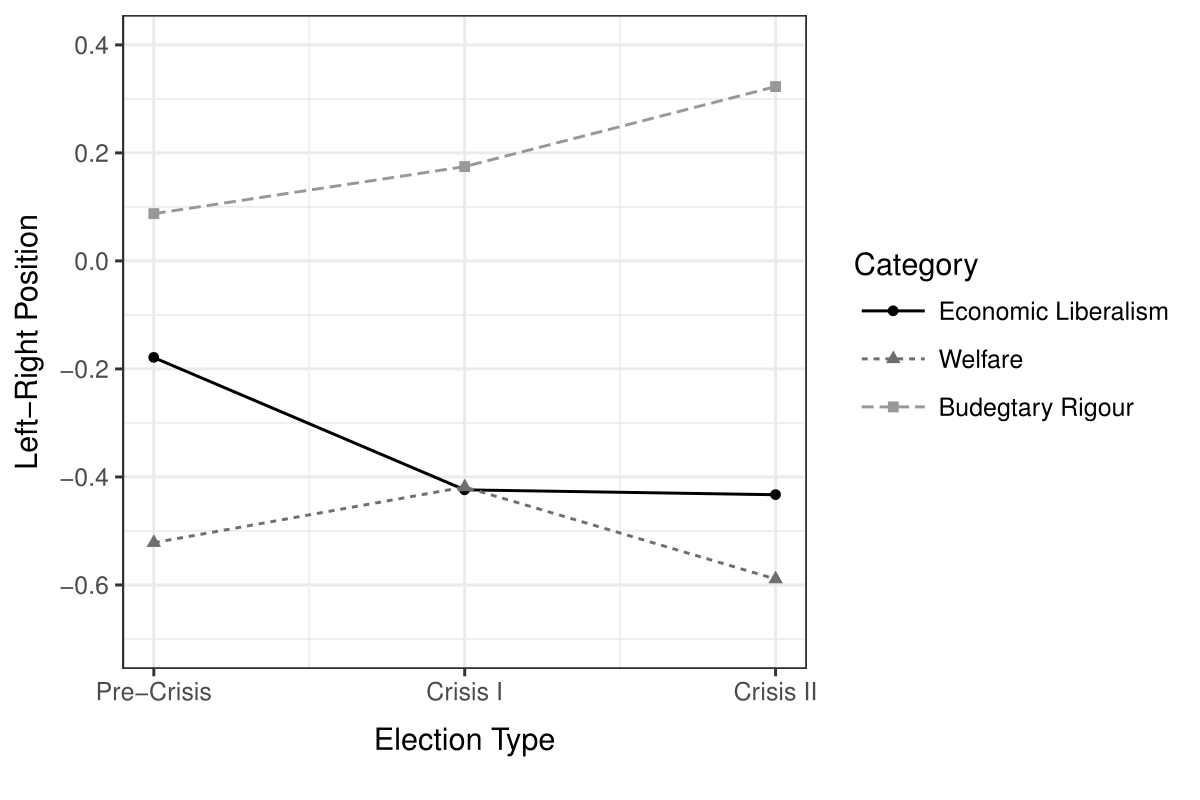The Missing Left? Economic crisis and the Programmatic Response of Social Democratic Parties in Europe
Published:
My article “The Missing Left? Economic crisis and the Programmatic Response of Social Democratic Parties in Europe” was just published by Party Politics. The article is available here.
In the article, I analyse the response of social democratic parties to the Great Recession that began in 2008 with the collapse of the Lehman Brothers. This economic crisis has also led to a crisis of social democratic parties, which struggled to respond to the Great Recession. Although the long-term consequences of the crisis are still unknown, social democratic parties have dramatically lost support across Europe and been thrown into a deep identity crisis. To understand how the economic crisis has contributed to this political crisis in the short- and medium-term, the article empirically examines whether and to what extent social democratic parties changed their positions in response to the Great Recession. To this end, the article uses a novel dataset based on media analysis in eleven countries, allowing a comparison of the salience that parties attribute to different issues and the positions that they adopt with regards to these issues during electoral campaigns before and after 2008.
My article shows that social democratic parties shifted their positions towards the left during the crisis but that their positions diverged with respect to different issue categories, as shown in the figure below. Although they defended the welfare state and opposed economic liberalism after the 2008 financial crisis, many parties also supported the reduction of government deficits and debt. Joining the chorus of austerity that became the dominant tune during the Euro crisis, social democratic parties adopted positions with regard to different economic issues categories, which do not neatly align on a single left-right dimension of conflict. This created tensions within the platforms of social democratic parties, which are a sign of the deep identity crisis that these parties faced in the wake of the economic crisis and that many of them have failed to resolve until this day.

The findings suggest that parties are strategic actors that respond to changes in their economic context. In response to large economic shocks like the Great Recession, parties changed the salience that they attribute to economic issues and the positions that they took on these issues in different ways. However, parties do not always change their positions in the same direction on all (economic) issue categories. Instead, party competition during the Great Recession was complex and cannot be represented on a single economic dimension as parties attempted to bundle policy packages together that do not fall on the same end of the left-right dimensions.
The article includes work that is part of my PhD. In later parts of my dissertation, I attempt to explain the curious patterns that I found in the Party Politics article. Note that the article is part of a special issue in Party Politics edited by Nicolò Conti, Swen Hutter, Kyriaki Nanou. The entire special issue is available here.
